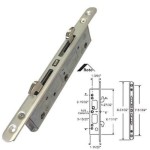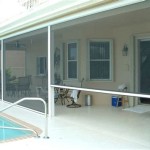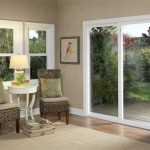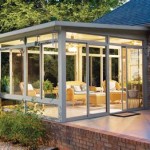Air Conditioners for Sliding Patio Doors: A Comprehensive Guide
Maintaining a comfortable indoor environment is crucial, especially during warmer months. For homes with sliding patio doors, effectively cooling the adjacent living spaces presents unique challenges. Standard window air conditioners often prove inadequate due to the size and configuration of patio doors. This article provides a comprehensive overview of alternative air conditioning solutions specifically designed or adapted for use with sliding patio doors, exploring different types, installation methods, and key considerations for selecting the optimal unit.
The large expanse of glass in patio doors allows significant heat gain, making it more difficult for standard air conditioning systems to maintain a consistent temperature. Furthermore, the design of sliding doors, with their horizontal orientation, limits the options available for traditional window units. Therefore, understanding the specific needs of this application and exploring the available alternatives is essential for efficient and effective cooling.
Understanding the Challenges of Cooling Spaces with Patio Doors
Patio doors, while offering aesthetic appeal and natural light, also present significant thermal management challenges. The primary issue is the increased surface area of glass compared to standard windows, leading to higher levels of solar heat gain. This means that more energy is required to cool the space, potentially increasing energy consumption and utility bills.
The properties of glass contribute significantly to this issue. Glass is a poor insulator, allowing heat to transfer through it readily. Solar radiation, particularly infrared radiation, passes through the glass and heats up objects within the room. This absorbed heat is then re-radiated, contributing to the overall increase in temperature. The larger the patio door, the greater the surface area for this heat transfer to occur, exacerbating the cooling problem.
Another challenge is the limited space available for installing traditional window air conditioners. Sliding patio doors typically have a horizontal orientation, making it difficult to securely mount a standard window unit. Adapting a window unit to fit in the sliding door opening can be complex and may require custom framing or modifications. Furthermore, these adaptations may compromise the security and weatherproofing of the door.
Finally, the aesthetic impact of an improperly installed or inappropriate air conditioning unit should be considered. A bulky or poorly fitted unit can detract from the overall appearance of the patio door and the surrounding living space. Therefore, selecting an air conditioning solution that is both functional and aesthetically pleasing is important.
Exploring Air Conditioning Options for Patio Doors
Several air conditioning options are available for spaces adjacent to sliding patio doors, each with its own advantages and disadvantages. These options include portable air conditioners, split-system air conditioners, and specialized window air conditioners designed for horizontal windows.
Portable Air Conditioners: These are self-contained units that can be moved from room to room. They typically vent hot air through a hose that is directed outside, often through a window or door. For patio doors, a portable air conditioner can be a convenient option, as it does not require permanent installation. However, portable units can be less energy-efficient than other types of air conditioners, and the vent hose can take up space and potentially create drafts.
The effectiveness of a portable air conditioner depends on its BTU (British Thermal Unit) rating, which indicates its cooling capacity. Selecting a unit with an appropriate BTU rating for the size of the room is essential for optimal cooling performance. Additionally, the quality of the window kit used to seal the vent hose is crucial for preventing hot air from re-entering the room.
Split-System Air Conditioners (Ductless Mini-Splits): These systems consist of an indoor unit and an outdoor unit connected by refrigerant lines. The indoor unit is typically mounted on a wall, and the outdoor unit is placed outside the building. Split-system air conditioners are generally more energy-efficient and quieter than portable units. They also offer more flexibility in terms of placement, as the indoor unit can be located away from the patio door.
The installation of a split-system air conditioner requires professional installation, which can add to the overall cost. However, the long-term energy savings and improved cooling performance often outweigh the initial investment. Furthermore, split-system air conditioners can provide both cooling and heating, making them a versatile option for year-round comfort.
Specialized Window Air Conditioners for Horizontal Windows: Some manufacturers offer window air conditioners specifically designed for horizontal windows or sliding windows. These units are typically longer and narrower than standard window units, allowing them to fit more easily into the opening of a sliding door. However, the availability of these units may be limited, and they may require custom framing or modifications to ensure a secure and weatherproof installation.
When considering a specialized window air conditioner, it is important to carefully measure the dimensions of the sliding door opening and select a unit that fits properly. Additionally, ensure that the unit is compatible with the type of window or door frame being used and that it can be securely mounted to prevent air leaks or security risks.
Key Considerations for Selecting an Air Conditioner
Choosing the right air conditioner for a space with a sliding patio door involves several key considerations, including cooling capacity, energy efficiency, installation requirements, noise level, and cost.
Cooling Capacity (BTU Rating): The cooling capacity of an air conditioner is measured in BTUs. A higher BTU rating indicates a greater cooling capacity. To determine the appropriate BTU rating for a room, consider the size of the room, the amount of sunlight it receives, the number of people who typically occupy the space, and the presence of heat-generating appliances. Online BTU calculators can provide a general estimate, but consulting with an HVAC professional is recommended for accurate sizing.
Using an air conditioner with an insufficient BTU rating will result in poor cooling performance and increased energy consumption. Conversely, using a unit with an excessively high BTU rating can lead to short cycling, where the unit turns on and off frequently, reducing its efficiency and potentially shortening its lifespan.
Energy Efficiency (EER and SEER): Energy efficiency is another crucial factor to consider. The Energy Efficiency Ratio (EER) and Seasonal Energy Efficiency Ratio (SEER) are used to measure the energy efficiency of air conditioners. A higher EER or SEER rating indicates greater energy efficiency. Look for air conditioners with Energy Star certification, which indicates that they meet certain energy efficiency standards.
Investing in an energy-efficient air conditioner can significantly reduce energy consumption and lower utility bills over the long term. While energy-efficient units may have a higher initial cost, the savings on energy bills will often offset the difference over time.
Installation Requirements: Different types of air conditioners have different installation requirements. Portable air conditioners are relatively easy to install, requiring only a vent hose and a window kit. Split-system air conditioners require professional installation, which can be more complex and expensive. Specialized window air conditioners may require some degree of modification to the window frame for secure and weatherproof installation.
Before purchasing an air conditioner, carefully consider the installation requirements and ensure that you have the necessary tools and skills or are willing to hire a qualified professional. Improper installation can lead to reduced cooling performance, increased energy consumption, and potential safety hazards.
Noise Level: The noise level of an air conditioner is an important consideration, particularly for bedrooms or living areas where quiet is desired. Air conditioners are rated in decibels (dB), with lower numbers indicating quieter operation. Look for air conditioners that are specifically designed for quiet operation or that have noise reduction features.
The noise level of an air conditioner can be influenced by several factors, including the type of compressor, the fan design, and the insulation of the unit. Reading customer reviews and comparing the noise ratings of different models can help you choose a unit that meets your noise level requirements.
Cost: The cost of an air conditioner includes the purchase price of the unit, as well as any installation costs. Portable air conditioners are generally the least expensive option, while split-system air conditioners are typically the most expensive. Specialized window air conditioners fall somewhere in between. When evaluating the cost of an air conditioner, it is important to consider both the initial cost and the long-term operating costs, including energy consumption and maintenance.
Creating a budget and researching different options within that budget is essential. Consider the features, energy efficiency, and long-term cost savings when comparing different models. Weigh the benefits of a more expensive, energy-efficient unit against the cost savings of a less expensive, less efficient unit. The best choice will depend on individual needs and priorities.

How To Install Portable Ac In A Slide Door Step By

14000 Btu Portable Air Conditioner Cools Up To 450 Sq Ft

7 Times A Portable Air Conditioner Makes Sense Over Window Ac Wirecutter

Honeywell Portable Air Conditioners Sliding Glass Door Kit Hl Series

The 6 Best Portable Air Conditioners Of 2025 Reviews By Wirecutter

Portable Air Conditioner 8000 Btu With Remote Control 3 In 1 Ac Unit Window Mount Exhaust Kit For Room Indoor Cool Up To 350

The 6 Best Portable Air Conditioners Of 2025 Reviews By Wirecutter

1pc 118inch Portable Air Conditioner Window Kit Adjustable Horizontal Sliding Panel For Unit
-edited.jpg?strip=all)
Portable Air Conditioners The Home

Freonic 6000 Btu Doe 115 Volt White Vented Portable Air Conditioner With Remote Cools 300 Sq Ft Fhcp061akr At Lowes Com








